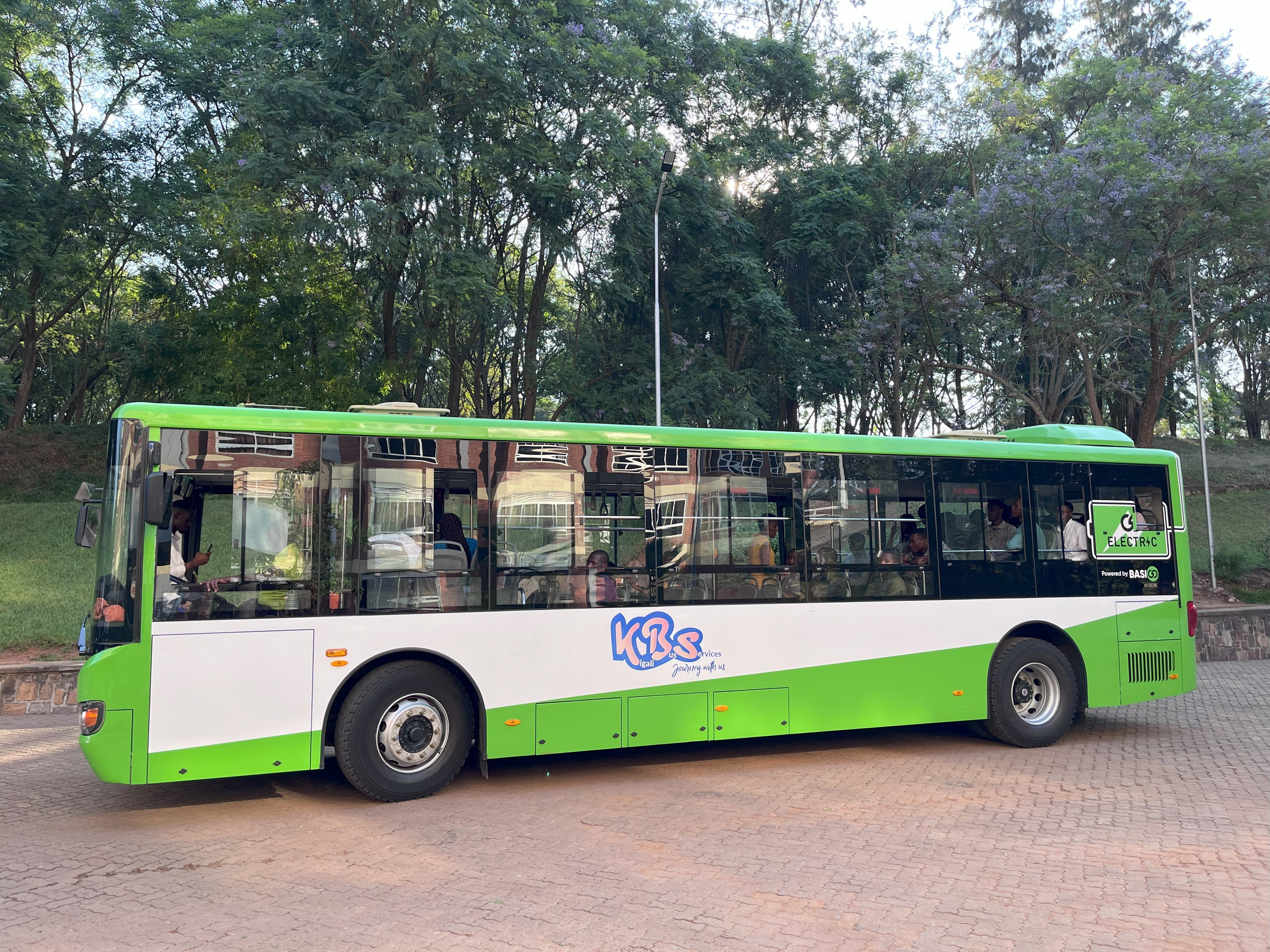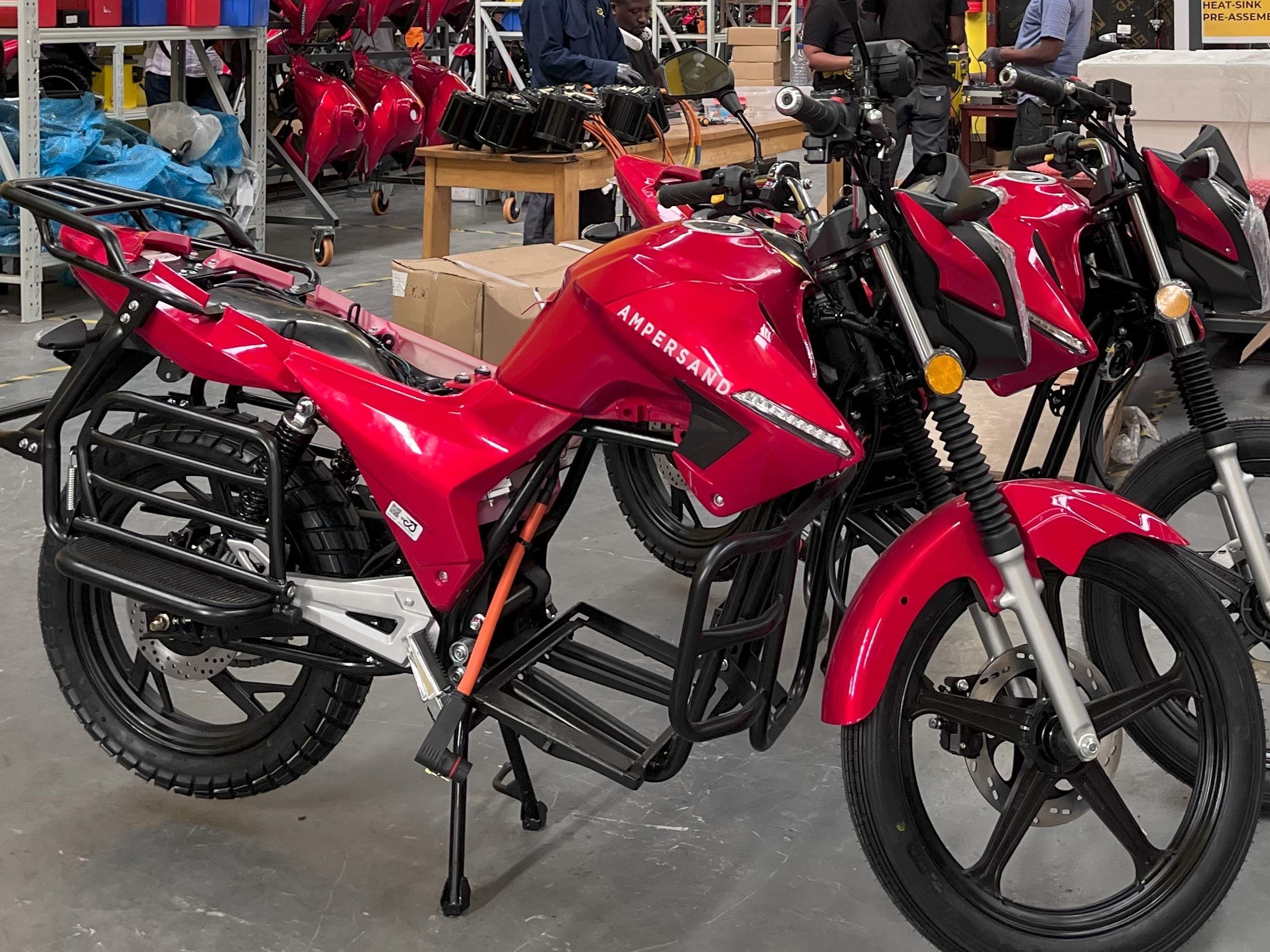Following the conclusion of its first training series the project
aims to impact rural communities and empower women.
Together with UEMI, PEM Motion, the University of Rwanda, and
private companies, Invest for Jobs developed practice-oriented
training programmes to upskill people in the e-mobility sector. 60
trainees have successfully completed the training. The
project now aims to strengthen rural communities and to empower
women.
Rwanda,
one of Africa’s most densely populated countries,
is grappling with significant air pollution challenges. The capital
city Kigali ranks among Africa's most polluted cities, with air
quality levels exceeding the World Health Organization's recommended
limits. Due to zero tailpipe emissions, electric vehicles
(EVs) are increasingly in demand as a solution to this environmental
problem presenting a great opportunity for Ruanda to advance and
create good jobs in the rapidly expanding electric mobility sector.
With this growth, the country is experiencing a rising need for
skilled workers.
To
address this challenge, the pilot project "Boosting E-Mobility
Jobs - Skills Development and Job Creation in e-Mobility in Rwanda"
aims to equip young people with the technical skills required by the
e-mobility sector. In cooperation with our partners
PEM Motion, Urban Electric Mobility Initiative (UEMI), and University
of Rwanda, we developed targeted training
programmes for university students and technical workers.
Collaborating with local companies, we defined practice-oriented
e-mobility courses in core areas: charging infrastructure (Kabisa),
electric motorcycles (Ampersand), public bike-sharing systems
(GuraRide), electric trucks (OX Delivers), and electric buses
(BasiGo). These
courses emphasize real-world applications through workshops,
company-based internships, and visits to local EV industry partners
like Kabisa.
 © GIZ - Kigali Bus Service
© GIZ - Kigali Bus Service
The
project launched in February 2024, following a detailed analysis of
local industry needs. It has now achieved its initial milestones: the
successful completion of the first two courses in its training
programme. In the first course, international experts from UEMI and
PEM Motion, as well as local industry partners, offered participants
an overview of sustainable transport, electric mobility, battery
technologies, and various business domains. At Invest for Jobs
partner companies - BasiGo (e-buses) and Ampersand (e-motorbikes) -
trainees gained practical experience. At Ampersand, participants
learned about the complete electric motorcycle production process,
from design and assembly to quality assurance and delivery.
The
second course focused on EV battery technology, covering battery
basics, safe handling, charging techniques, and manufacturing.
Participants also learned about key concepts such as battery
recycling, the circular economy, and second-life applications for
sustainable management.
The
60 traineeship graduates now possess highly in-demand skills. In an
upcoming online course, participants will gain further in-depth
knowledge on topics related to electric vehicles, including battery
production, charging, and maintenance.
 © GIZ - Electric motorbike
© GIZ - Electric motorbike
Boosting Female and Rural Employment
The
project has expanded its scope to address two key challenges in
Rwanda’s development: the inclusion and empowerment of rural
communities in general, and of women in particular. The project
partners now aim to develop a sustainable business model by improving
women's access to jobs in the e-mobility sector. Following a
comprehensive analysis of the female target group's needs and
concerns, a training programme consisting of driving skills, safety
measures, and basic maintenance will be developed.
The
project also aims to bridge the mobility gap between rural and urban
areas by promoting electric bicycles (two- and three-wheelers) for
passenger and freight transportation services. A pilot project in
Nyamata, in the Bugesera District, will explore the potential of
e-bikes for public transportation and encourage local bicycle taxi
associations and logistics companies to adopt their use through
shared leasing models. The project will develop a business model to
achieve these objectives in close collaboration with communities,
local companies and key stakeholders,
Click
on the link to read the GIZ study titled “Exploration of Market Potentials in Battery Recycling
and Refurbishment in Africa – Case Study of: Ghana, Rwanda,
Morocco, Cameroon, and Kenya” (July 2024)